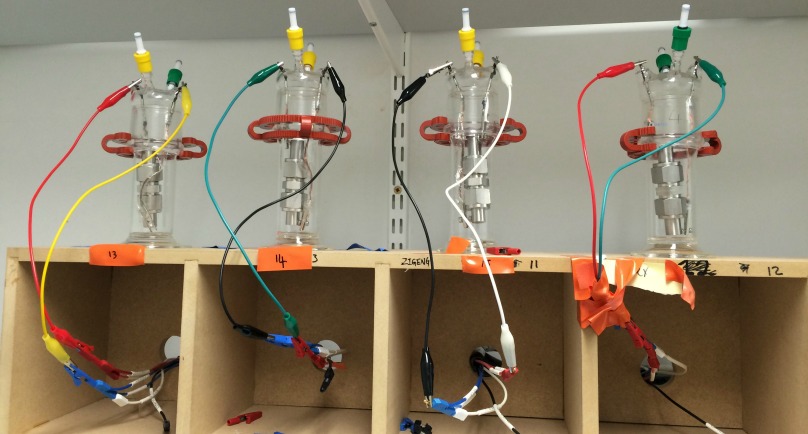Image:Part of the University of Cambridge’s laboratory demonstration model of a lithium-oxygen battery is is shown in this handout picture by Tao Liu released on October 29, 2015. REUTERS/Tao Liu/Handout via Reuters
By Will Dunham
WASHINGTON (Reuters) – Scientists have created a battery whose technology in principle could power electric cars and other energy-hungry devices far better than current lithium-ion batteries, but it remains years away from commercial use.
Researchers at the University of Cambridge on Thursday announced the creation of a laboratory demonstration model of a lithium-oxygen battery that overcomes many of the barriers that have held back the development of this technology.
They said the battery boasts very high energy density, is about 93 percent efficient – better than previous efforts – and can be recharged more than 2,000 times.
Clare Grey, a Cambridge professor of materials chemistry who led the research, called it “a step towards a practical battery, albeit with many hurdles ahead.” The researchers said it could be more than a decade before a practical lithium-oxygen battery is ready, in part because the battery’s ability to charge and discharge is too low.
In cars, the range for a compact, fully charged battery has been unable to reach that of a full tank of gasoline in a regular engine because current lithium-ion batteries do not pack that kind of power punch.
The lithium-ion rechargeable battery, first introduced in 1991, helped power the portable electronics revolution including laptops and smartphones as well as powering some vehicles.
Lithium-oxygen batteries, also called lithium-air batteries, have the potential to deliver the desired power thanks to a high energy density – a measure of energy stored for a given weight – that could be 10 times that of lithium-ion batteries and approach that of gasoline. They also could be a fifth the cost and a fifth the weight of lithium-ion batteries.
But problems have beset lithium-oxygen batteries that affect their capacity and lifetime, including troublesome efficiency, performance, chemical reaction and potential safety issues and the limitation of needing pure oxygen rather than plain old air.
The Cambridge demonstrator battery employs different chemistry than previous work on lithium-air batteries, for example using lithium hydroxide rather than lithium peroxide. It also uses an electrode made of graphene, a form of carbon. The result was a more stable and efficient battery.
Grey said it is too early to gauge lithium-oxygen battery range limits in vehicles.
Intellectual property from the research is owned by Cambridge Enterprises, the university’s commercialization arm, and has been patented, Grey said.
The research was published in the journal Science.
(Reporting by Will Dunham)
Copyright 2015 Thomson Reuters. Click for Restrictions.


